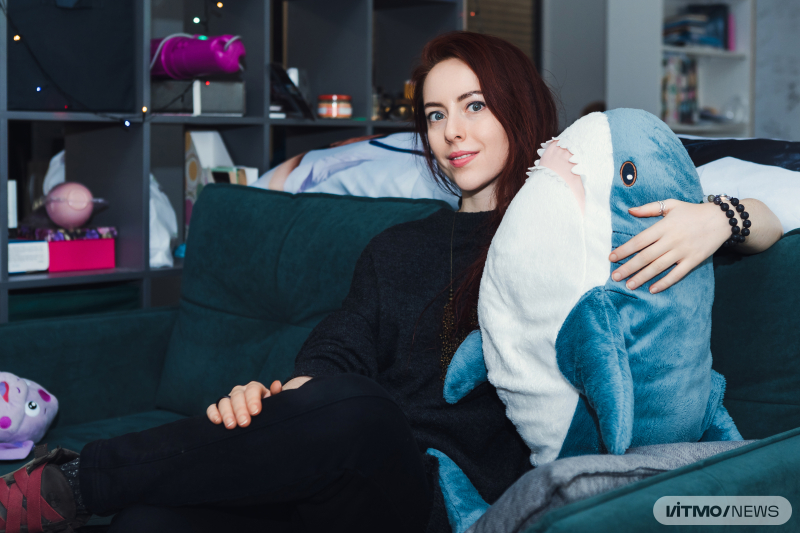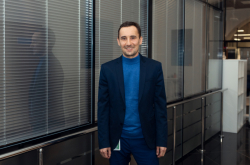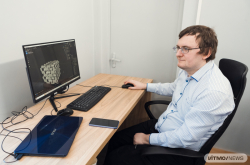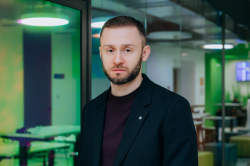Please tell us about your field of research.
I am a bioinformatician and I’ve been studying human gut microbiome for over a decade – I have around 30 papers published on this topic. A microbiome is a community of microorganisms that occupy a specific habitat, in this case it’s the human gut. I study the composition of gut microbiome and its connection to various clinical, demographic, and environmental factors.
Why do we need to study gut microbiome?
Gut microbiome is the largest and most diverse of its kind in the human body. It has a direct effect on the health of the entire body because it is connected to it via many metabolic links, through the substances that the microbiome produces by consuming the bits and pieces that couldn’t be digested. The composition of human gut microbiome can also have an effect on the development of various diseases, the general level of inflammation in the body, and even higher brain functions.
Research of the microbiome can be of use when developing treatments and rehabilitation approaches after various diseases or antibiotic therapy. For instance, such studies can be used to develop a personalized diet for people with obesity, because there are specific bacteria associated with this condition – and there are other bacteria that prevent it. Moreover, there is a connection between microbiome composition and the development of type 2 diabetes, atherosclerosis, and inflammatory bowel diseases. What’s more, another actively researched link is one between microbiome and its effect on treatment and development of neurodegenerative diseases, such as Alzheimer’s and Parkinson’s.

Anna Popenko. Photo by Dmitry Grigoryev / ITMO.NEWS
What projects are you working on now?
Perhaps the most unusual of them is the one where we study the microbiome of northern reindeer herders, country dwellers, including those from the Republic of Sakha, with a very specific diet rich in meat. The thing is, the gastrointestinal system of northern peoples functions a little differently than that in Western Russia. For instance, in the North, people have gastric juices of a higher acidity, which helps digest meat better. Also, in winter, they often eat raw fish, which can also have an effect on their microbiome composition. This project will help us unravel the way the microbiome can adapt to different diets.
In terms of applied projects, we study the microbiome of patients who underwent bariatric surgery (it includes a reduction of the patient’s stomach as part of obesity treatment – A.P.). We have data on the microbiome of such patients at different times post-surgery: for example, six months and a year, as well as information on the metabolites produced by their microbiome. Based on this data, we are looking for a link between the composition of microorganisms and the condition of patients after surgery. It is possible that in the future, these results will help us develop additional stages for post-surgery therapy for improved rehabilitation: from a special diet that will help diversify the microbiome to microbiome transplants.
Describe the usual course of your research projects.
My industrial partners, for instance, Nobias Technology, organize the clinical stage: they acquire microbiome samples at clinics (usually, these are fecal samples); then they separate DNA from samples (looking for a specific gene, 16s PHK, which is useful for analyzing bacteria genealogy), sequence the DNA, and send these data to me. At ITMO, we transport the results of sequencing into special tables and classify the origin of separate protein sequences down to specific bacteria or archaea; as a result, we identify the taxonomic composition of bacteria and conduct biostatistical analysis. Based on this information, we look for patterns and make our conclusions that may in the future contribute to the development of medical guidelines.
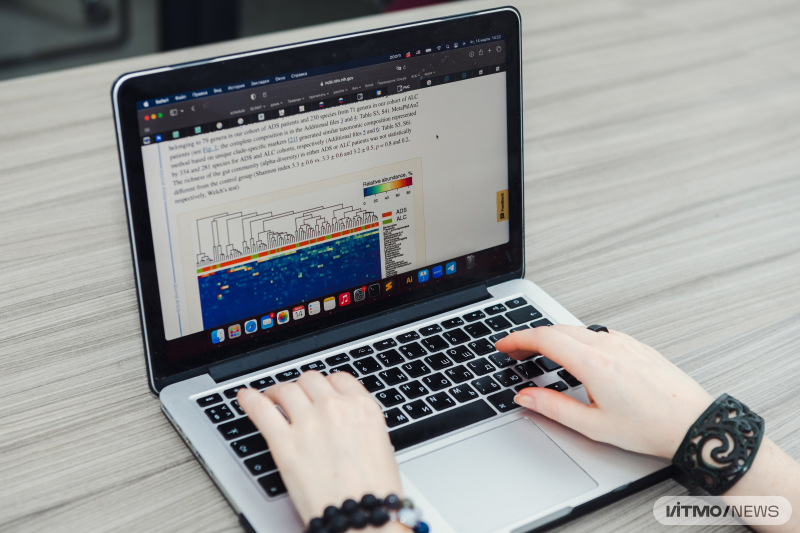
Photo by Dmitry Grigoryev / ITMO.NEWS
How did you get into science? And why did you choose this field in particular?
I think I became a scientist for the romantics of it all: it’s cool to discover new things and generally do something that isn’t understood by 99% of people. I got my first degree at the Faculty of Bioengineering and Bioinformatics of Lomonosov Moscow State University; then I wrote my PhD thesis on bioinformatics analysis of the taxonomy of human gut microbiome at the Lopukhin Federal Research and Clinical Center of Physical-Chemical Medicine. After that, I spent a year working at BostonGene as a bioinformatician. At that time, my former PI launched Knomics, a startup for a microbiome test, and invited me. This project was later purchased by Atlas Biomed Group, where I headed the development of the test. Since September 2023, I’ve been working at ITMO.
You are part of the ITMO Fellowship Program. How did you find out about it and why did you decide to join our university?
I’ve recently moved from Moscow to St. Petersburg. I don’t like the capital because of its high tempo: even now when I visit it, I feel like I am in a race as soon as I step off the train – this is exhausting. It is much more peaceful in St. Petersburg, people have a better work-life balance, and the city is more beautiful.
With my move, I had to find a new job. As I’d spent a long time working in the industry, I had a gap in terms of publications. I decided that I want to diversify my research career by coming back to academia and increasing my reputation with new papers. On the other hand, I was wary of ending up in a conservative academic environment like the one at my alma mater. ITMO has a reputation of a daring, modern university, where everyone is very active, so I wanted to work here. I submitted my CV to the general email and got a position. Having worked at ITMO for two months, I learned about the Fellowship Program.
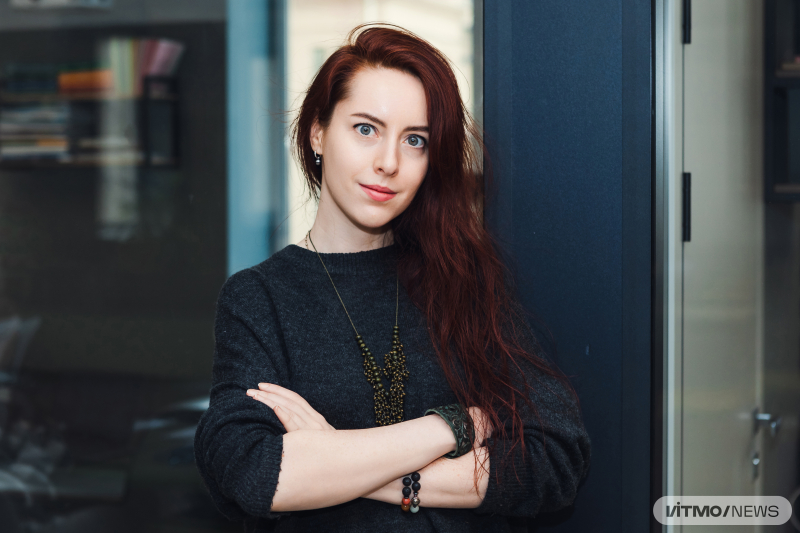
Anna Popenko. Photo by Dmitry Grigoryev / ITMO.NEWS
What are your experiences of working at ITMO so far?
I have only positive things to say. I was surprised when right from the start I became the head of a research group in my own field. It was unexpected that so many students were interested in my lab, too: I am now working with 10 young scientists, two of whom are Master’s students who will be graduating this year. I have also found new industrial partners: Nobias Technology and Novabiom.
What are your nearest plans?
I’d like to establish a full-scale bioinformatics lab. Whereas currently we receive microbiome data from our partners, in the future, I’d like to conduct my own research, as well as study microbiome from other parts of the human body.
